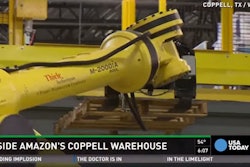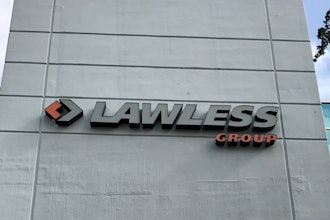Distributors that sell almost exclusively in a business-to-business (B2B) market may not feel the need to consider the nuances of business-to-consumer (B2C) engagements. However, the reality is that behind every ‘B’ is a ‘C’: a “consumer” that acts on behalf of the business. Now faced with drastically changing consumer behavior, by approaching a B2B engagement through the lens of a more consumer-centric perspective, distributors are better able to implement more effective strategies to help drive revenue.
According to a recent report from the U.S. Census Bureau, the estimate of U.S. retail e-commerce sales for the third quarter of 2014 equaled $78.1 billion; that is an increase of four percent from the previous quarter. While some may find the data to be relevant only for B2C retailers, the trend should be evaluated by distributors as well. Just as B2C consumers are increasingly purchasing both products and services online rather than in brick and mortar stores, so too are businesses.
As momentum swells behind the consumer mindset, it becomes more critical for distributors to evaluate and enhance their e-commerce and online strategies. Distributors need an agile online presence to keep pace with changing customer demands, as more harm than good occurs if that presence is outdated. Simply displaying information on a website will not entice new business, as anyone can do a quick search to compare prices and select the lowest option. Instead, distributors need to plan for a comprehensive online presence to create a picture of the company that accurately reflects the niche that is served. By providing in-depth information and using multiple channels such as blogs or social media to connect to visitors, distributors can attract new customers in ways beyond just having the best price point at the closest location. This information could include in-depth product overviews, employee backgrounds with industry qualifications, or details on support and services available for products after purchase.
A recent study published by the University of North Carolina states that by 2020, approximately 45 percent of all U.S. workers will fall within the ‘millennial’ category. This rise of the next generation workforce will be experienced in all industries, including distribution. With this shift in mind, a strategic pairing of an e-commerce platform and online presence will prove to be essential for interacting with customers and for attracting top talent in new hires. The first thing a millennial will do before buying from a company or applying for a job is research that company online to gain insight into its history, market presence and overall message. If they come up empty handed, this conveys that the organization is not up-to-speed in its use of technology. Whether true or not, this may lead the millennial to view the company as less reputable than one with a modern, well developed website. This first impression could potentially impact their decision to continue working with the distributor in a B2B environment or accept a job offer from the company. Next generation workers want to collaborate with organizations that are leaders in the industry, and ineptitude in this area shows that the company is simply behind the times.
In direct connection to the rising need for a strategic e-commerce platform, distributors should also look to B2C companies as a model for collaboration between IT and marketing. If a company is effectively marketing itself online, then it likely also has the infrastructure in place to support online leads and inquiries. This is where an integrated customer relationship management (CRM) application becomes essential. B2C organizations have been investing heavily in CRM for years, but now it is distributors’ turn to consider expanding this technology within their IT strategy. Creating a way to better understand what customers need and serve them optimally is crucial in order to effectively conduct business, regardless of what interactions take place. If these inquiries are not organized and answered in a timely fashion, the distributor may lose the opportunity forever. An integrated CRM system directly impacts service, and great service is often rewarded with loyalty.
Just as in the B2C market, the bottom line is always about service. For B2B organizations, delivering enhanced services has grown to encompass a need for marketing and e-commerce strategies that provide customers with the level of information and accessibility they have grown to expect as traditional consumers. Distributors should look to ground these initiatives in technology, just as B2C companies have been doing for years, in order to position their organization for future growth and success.























